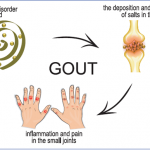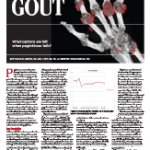In 1982, my wife (also a rheumatologist) and I attended our first American Rheumatism Association (now the ACR) national meeting. After the meeting we stayed with a friend in a suburb of Boston, where we also had the opportunity to meet our hostess’ in-laws, a retired general practitioner and his wife. When her father-in-law shook…



